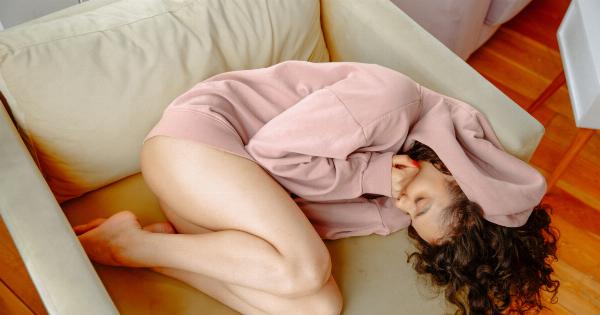Menstrual cramps are a common and uncomfortable experience for many women. At its worst, it can affect everyday routines and activities.
But relief is possible, and in this ultimate guide to relieving cramps, we explore the various methods and techniques to ease menstrual pain.
What are Menstrual Cramps?
Menstrual cramps are throbbing, painful sensations felt in the lower abdomen during and before menstruation. It is caused by uterine contractions, which occurs when the uterus expels its lining during the menstrual cycle.
Some women may only experience mild discomfort, while others may suffer debilitating pain throughout the day. Menstrual cramps are not the same as premenstrual syndrome (PMS) and are usually felt only in the lower abdomen.
Remedies for Menstrual Cramps
There are several remedies available to help relieve menstrual cramps, including home remedies, over-the-counter medications, and medical procedures. Some popular remedies are:.
1. Heat Therapy
Heat therapy, such as a heating pad or warm bath, can help relax uterine muscles and provide temporary relief from cramps. Place a heating pad on your lower abdomen for 15-20 minutes, or take a warm bath to ease cramping.
Alternatively, a hot water bottle or a warm compress can also work.
2. Exercise
Exercising regularly can help reduce menstrual cramps by increasing blood flow, reducing stress, and releasing endorphins. Try light activities such as walking, cycling, or yoga to help alleviate menstrual pain.
It’s advisable to avoid heavy exercise during your period, as it may cause more discomfort.
3. Over-the-counter Medications
Over-the-counter medications, such as ibuprofen or naproxen, can help reduce menstrual cramps. These nonsteroidal anti-inflammatory drugs (NSAIDs) work by reducing prostaglandins, hormone-like substances that cause pain and inflammation.
You can also use acetaminophen or paracetamol to relieve discomfort. Always follow the recommended dosage and consult with your doctor before taking any medication.
4. Herbal Remedies
Herbal remedies, such as ginger, cinnamon, or chamomile tea, have anti-inflammatory and pain-relieving properties that can help to reduce cramps. You can also take supplements, such as magnesium or omega-3 fatty acids, which help reduce menstrual pain.
Consult with a doctor before taking any supplements as they may have side effects or interact with other medications.
5. Medical Procedures
In severe cases, medical procedures such as hormonal contraceptives, endometrial ablation or laparoscopic surgery may be recommended by medical professionals.
Hormonal contraceptives, such as birth control pills or patches, work by suppressing ovulation and reducing the severity of cramps. Endometrial ablation and laparoscopic surgery involve removing the uterine lining or performing minor surgical procedures to reduce menstrual pain. Your doctor can advise you on the best course of action.
Preventing Menstrual Cramps
While menstrual cramps are inevitable for many women, there are ways to prevent or reduce the severity of cramps. Some preventive measures include:.
1. Maintaining a Healthy Diet
Eating a healthy diet rich in fruits, vegetables, and whole grains can help alleviate menstrual cramps. Avoid consuming excessive caffeine, alcohol, and salt, which can increase bloating and discomfort during your period.
2. Regular Exercise
Exercising regularly can improve blood flow, reduce stress, and alleviate menstrual pain. Try to include at least 30 minutes of exercise daily, even if it’s just a brisk walk or light stretching.
3. Stress Management
Stress can exacerbate menstrual cramps, so it’s important to manage stress levels. Techniques such as meditation, deep breathing, or yoga can help to reduce stress and relieve cramping during your period.
4. Using Menstrual Products that Suit Your Body
Choosing the right type of menstrual products such as pads, tampons, menstrual cups, or period underwear can help alleviate menstrual pain. Find products that suit your comfort levels and menstrual flow to reduce discomfort and cramps.
5. Seeking Professional Help
If menstrual cramps are affecting your daily life, consult with a medical professional. They can help diagnose underlying medical conditions that may be causing discomfort or recommend treatments to relieve menstrual pain.
Conclusion
Menstrual cramps are a common experience for many women, but relief is possible. With a combination of home remedies, over-the-counter medications, and preventive measures, menstrual pain can be reduced.
Try different methods and techniques to find what works best for you to alleviate cramps and enjoy your period.






























